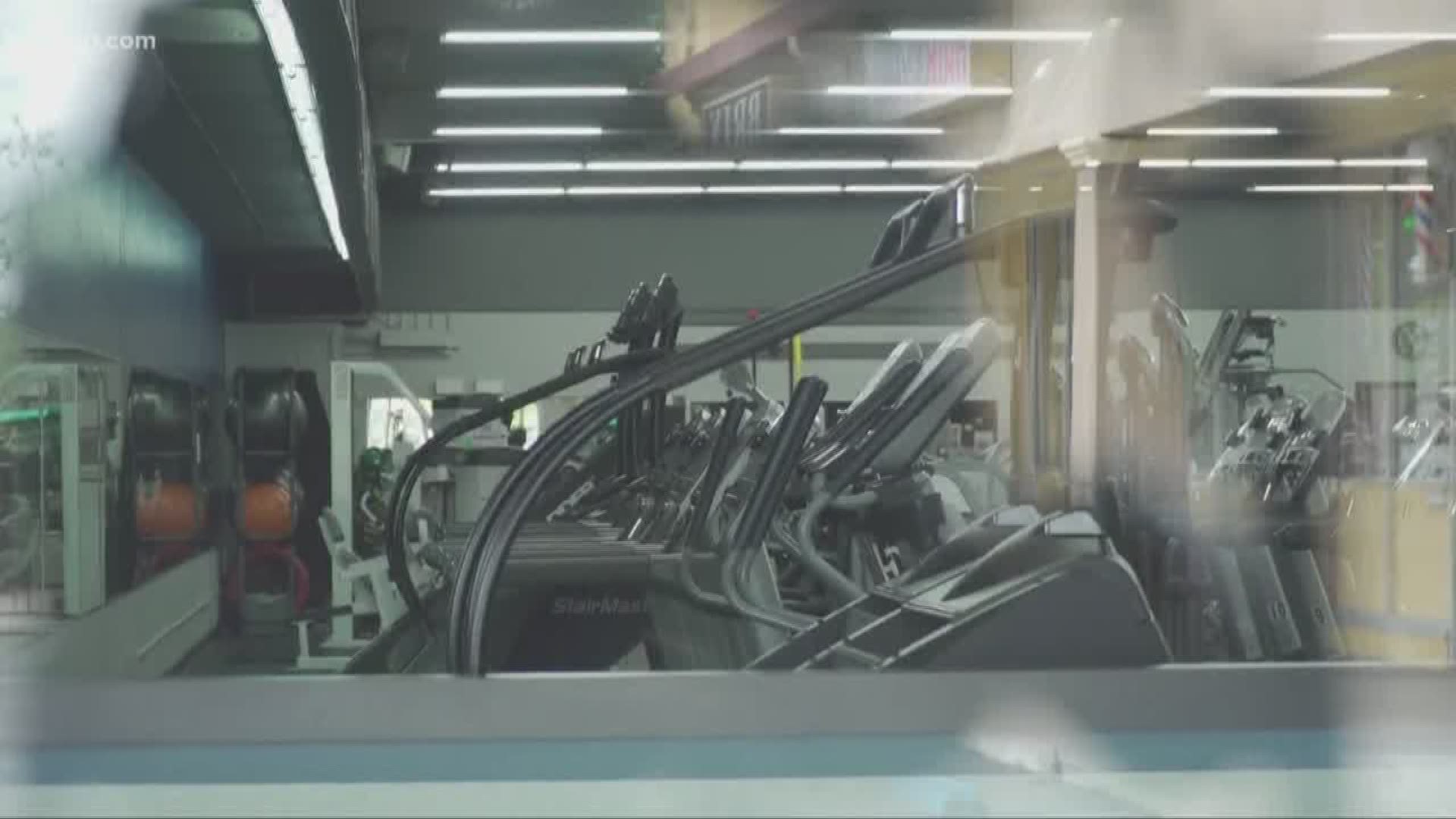LODI, Calif. — On the streets of Lodi, many "non-essential" businesses were closed Tuesday.
Fitness gyms and salons are shuttered but others including a car stereo shop were open. When seeking comment, the one person inside refused. D & L Appliances remained open. An employee said the business is essential.
"We still have to provide appliances for the customers like refrigerators, freezers and that sort of thing. And, my dad does repairs," Isela Guerrero said.
Guerrero said they sold out of freezers as customers stocked up on meat and other food.
Another business that remains open is Skydive Lodi Parachute Center in Acampo off Highway 99. Although there were no parachutes in the sky, the doors were open. The owner didn't respond when ABC10 inquired.
So, which businesses are considered essential?
According to the California Department of Public Health, gas stations, pharmacies, grocery stores, restaurants, banks, laundromats and state and local government functions are deemed essential to stay open.
"We want everyone on the same page. And, if need be, we are going to be taking effort to enforce," Deputy Sandra Mendez of the San Joaquin County Sheriff's Office, said.
According to the sheriff's office, the owner of a non-essential business can face six months in jail and a $1000 fine for the misdemeanor.
"Our goal is to make sure that everyone is staying safe and that they are aware of what they are doing," Mendez said.
Then there is Fernando Gomez, co-owner of the Razor's Edge barbershop, which has complied with the order and is now closed. He was at his shop to clean and stay busy, but is worried about his future.
"My bills keep coming in. It's hard when the money's not flowing in. I'm an individual contractor, so, ya know. It is what it is," said Gomez.
RELATED:
GET MORE INFO:
COVID-19 BACKGROUND
According to the CDC, coronavirus (COVID-19) is a family of viruses that is spreadable from person to person. Coronavirus is believed to have been first detected in a seafood market in Wuhan, China, in December 2019. If someone is sick with coronavirus, the symptoms they may show include mild to severe respiratory illness, cough, and difficulty breathing.
Currently, there is no vaccine; however, the CDC suggests the following precautions, along with any other respiratory illness:
- Avoid close contact with people who are sick.
- Avoid touching your eyes, nose, and mouth.
- Stay home when you are sick.
- Cover your cough or sneeze with a tissue, then throw the tissue in the trash.
- Clean and disinfect frequently touched objects and surfaces using a regular household cleaning spray or wipe.
- Wash your hands with soap and water for a minimum of 20 seconds.
WHY HEALTH OFFICIALS ARE SO CONCERNED
Some people have compared the low overall death toll to the flu's high annual death toll in the United States as a reason not to be concerned about COVID-19, however, doctors and health officials are concerned for three main reasons:
- There's no vaccine yet and won't be one for until early 2021, at the soonest. Scientists are still researching what other medications could help patients.
- Some people have built up immunity to the flu, but few have immunity to COVID-19 version of coronavirus.
- Both the flu and COVID-19 are spread by droplets, but COVID-19 might be spread in the air. Scientists are researching exactly how COVID-19 spreads.
HEAR FROM DOCTORS:
Dr. Payal Kohli, a cardiologist & doctor of internal medicine, spoke with ABC10's Walt Gray about the novel coronavirus, those most at risk, vaccine timeline, & more.
Dr. Dean Blumberg, the Chief of Pediatric Infectious Diseases at UC Davis, answered some FAQs from ABC10 viewers about the coronavirus:

